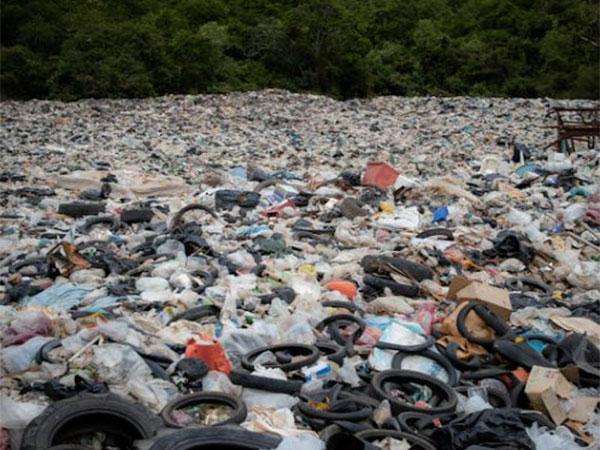England [UK], August 2 (ANI): Two of the planet’s most urgent environmental stressors have the potential to affect the development and reproductive production of plants found along the world’s coasts, according to new research.
The study was led by experts in plastic pollution and plant biology from the University of Plymouth’s School of Biological and Marine Sciences and the International Marine Litter Research Unit.
The study, published in Environmental Contamination, is one of the first to investigate the impact of saltwater floods and microplastic contamination on coastal plants.
It showed that both stressors had some effects on the species tested, with microplastics impacting the plants’ reproduction while flooding caused greater tissue death.
However, being exposed to both microplastics and flooding together – a threat likely to increase as a result of climate change and plastic use – had a more pronounced impact on their resource allocation.
This, in turn, led to the plants exhibiting altered growth and experiencing a short-term suppression in their photosynthetic efficiency, responses affect the plant’s ability to capture water, nutrients and sunlight, and contribute to ecosystem wellbeing.
They say it signposts the potential for microplastics to present an elevated risk when in combination with additional stressors like seawater flooding and that, as a result, establishing the threats presented by multiple co-occurring stressors on ecosystem resilience is a priority.
Dr Winnie Courtene-Jones, the study’s lead author, said, “This research highlights the potential for microplastics, composed of conventional and biodegradable plastic, to detrimentally affect plant functioning. Moreso, it indicates that the effect of microplastics can be magnified by other environmental factors such as rising sea levels and coastal flooding. Studies such as this help us appreciate the potential harm posed by microplastics to a range of organisms, and ecosystem resilience generally.”
The study was carried out as part of BIO-PLASTIC-RISK, a £2.6million project led by the University and supported by the Natural Environment Research Council.
It focused on buck’s horn plantain (Plantago coronopus), a low-growing perennial native to Europe, Asia and North Africa – but also found in the United States, Australia, and New Zealand – which commonly grows in sand dune and beach shingle coastal habitats.
Plants were grown in soil containing conventional or biodegradable plastics for 35 days before being flooded with seawater for 72 hours, replicating the kinds of flooding event increasingly associated with storms and coastal storm surges.
They were then grown for a further 24 days with scientists monitoring plant survival in addition to factors such as plant size, photosynthetic efficiency and flower production. (ANI)
Disclaimer: This story is auto-generated from a syndicated feed of ANI; only the image & headline may have been reworked by News Services Division of World News Network Inc Ltd and Palghar News and Pune News and World News
HINDI, MARATHI, GUJARATI, TAMIL, TELUGU, BENGALI, KANNADA, ORIYA, PUNJABI, URDU, MALAYALAM
For more details and packages
















